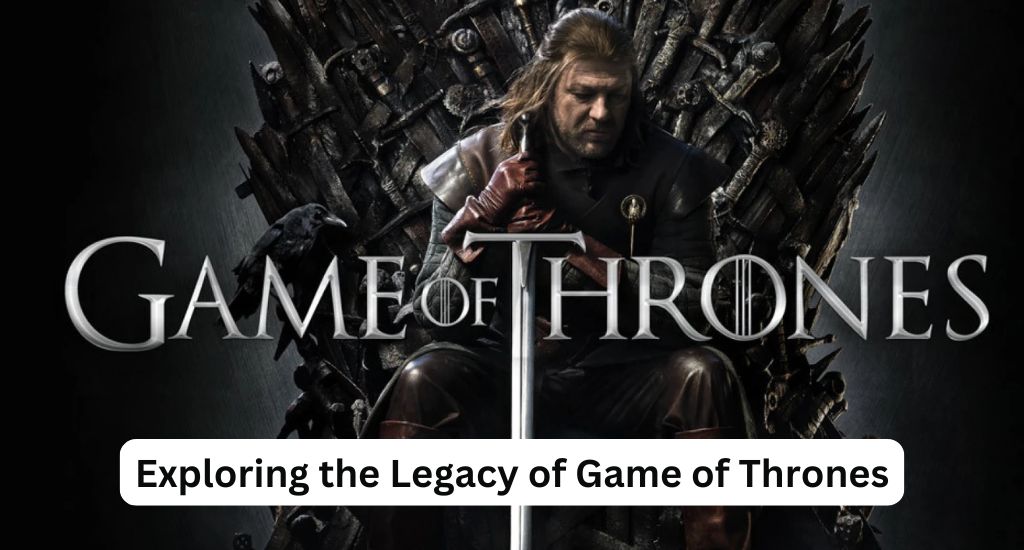
“Game of Thrones,” an epic tale of power, betrayal, and the struggle for the Iron Throne, has left an indelible mark on modern television and pop culture. Based on George R.R. Martin’s “A Song of Ice and Fire” series, the show captivated audiences worldwide with its intricate storytelling, complex characters, and unexpected plot twists. In this article, we delve deep into the various elements that made “Game of Thrones” a phenomenon, examining its impact, the controversies it sparked, and its enduring legacy.
The World of Westeros: A Detailed Exploration
Westeros, the fictional continent where much of “Game of Thrones” takes place, is a richly detailed world that rivals some of the most famous fictional settings in literary history. The Seven Kingdoms, each with its own distinct culture, history, and political intrigue, provide a vast and varied backdrop for the series’ events.
The geography of Westeros, from the icy lands beyond the Wall to the sun-soaked regions of Dorne, plays a crucial role in shaping the narrative. The Wall itself, a colossal structure of ice and magic, symbolizes the boundary between civilization and the wild, the known and the unknown. This barrier is not just physical but metaphorical, representing the fragile line between order and chaos.
Winterfell, the ancestral home of House Stark, embodies the harsh, unforgiving nature of the North. Its ancient godswood, with the heart tree at its center, connects the Starks to the old gods and the ancient traditions of the First Men. The Stark family motto, “Winter is Coming,” serves as a constant reminder of the inevitable hardships that lie ahead, a theme that resonates throughout the series.
In contrast, King’s Landing, the capital of the Seven Kingdoms, is a bustling, vibrant city filled with political machinations and power struggles. The Iron Throne, forged from a thousand swords, is a potent symbol of the desire for power that drives much of the plot. The throne itself is uncomfortable, a reminder that ruling is not easy and that those who seek power must constantly be on guard.
Character Arcs and Development: The Heart of the Series
One of the most compelling aspects of “Game of Thrones” is its character development. The show features a large ensemble cast, each character undergoing significant growth and change throughout the series. This complexity is one of the reasons why the show resonated with so many viewers.
Tyrion Lannister, portrayed by Peter Dinklage, is a standout character whose journey from a cynical, underestimated younger son to the Hand of the Queen is one of the series’ most compelling arcs. Tyrion’s wit, intelligence, and moral compass make him a fan favorite, even as he grapples with his family’s legacy and his role in the world.
Daenerys Targaryen‘s transformation from a timid, exiled princess to the fierce Mother of Dragons is another central storyline. Daenerys embodies the theme of power and its potential for both good and evil. Her journey is marked by triumphs and tragedies, ultimately leading to one of the most controversial conclusions in television history.
Jon Snow, the brooding, honorable bastard of Winterfell, is another character whose arc captures the essence of the series. His struggle with identity, loyalty, and duty is a microcosm of the larger themes of “Game of Thrones.” Jon’s ultimate fate, intertwined with his true parentage and his relationship with Daenerys, reflects the show’s ability to surprise and subvert audience expectations.
The Politics of Power: Intrigue, Alliances, and Betrayals
The political landscape of “Game of Thrones” is as treacherous as it is fascinating. Power struggles, shifting alliances, and betrayals are the lifeblood of the series, driving the narrative forward and keeping viewers on the edge of their seats.
The War of the Five Kings is a prime example of the chaos that ensues when power is up for grabs. The death of King Robert Baratheon sets off a chain of events that leads to multiple claimants to the throne, each with their own motivations and strategies. The Starks, Lannisters, Baratheons, and Greyjoys are all drawn into the conflict, each vying for dominance in a world where loyalty is fleeting, and trust is a rare commodity.
Cersei Lannister, played with icy resolve by Lena Headey, is a character who embodies the ruthlessness needed to survive in this world. Her ascent to power is marked by cunning, manipulation, and a willingness to sacrifice anyone who stands in her way. Cersei’s actions, particularly her use of wildfire to destroy the Great Sept of Baelor, exemplify the lengths to which she will go to secure her position.
Littlefinger (Petyr Baelish) and Varys, two of the most skilled players in the game of thrones, represent different approaches to power. Littlefinger’s ambition and ability to sow discord for his gain contrast with Varys’s more subtle, behind-the-scenes manipulation. Both characters are master tacticians, and their interactions add a layer of complexity to the already intricate web of politics in Westeros.
READ THIS POST :–Mastering surviving the game as a barbarian in 2024
Controversies and Criticisms: A Divisive Conclusion
Despite its success, “Game of Thrones” was not without its controversies. The final season, in particular, sparked intense debate among fans and critics alike. The pacing of the last episodes, the resolution of key plotlines, and the fates of beloved characters were all points of contention.
Daenerys Targaryen’s descent into madness and her subsequent death at the hands of Jon Snow were particularly polarizing. Many fans felt that her character arc was rushed, and her turn to tyranny was not sufficiently developed. This decision, along with the destruction of King’s Landing, left a lasting impact on the show’s legacy, with some arguing that it undermined the careful character development that had come before.
The Iron Throne itself was destroyed in the final episode, a symbolic end to the quest for power that had driven the series. While some viewers appreciated the poetic justice of this conclusion, others felt that it was an unsatisfying end to a story that had captivated audiences for nearly a decade.
The Enduring Legacy of “Game of Thrones”
Despite the controversies surrounding its conclusion, the legacy of “Game of Thrones” is undeniable. The show set a new standard for television, both in terms of production quality and narrative complexity. Its impact on pop culture is immense, with references to the series appearing in everything from politics to fashion.
The success of “Game of Thrones” has also paved the way for a new era of television, where epic, serialized storytelling is embraced by audiences and networks alike. Shows like “The Witcher,” “His Dark Materials,” and “The Mandalorian” have all benefited from the trail blazed by “Game of Thrones.”
George R.R. Martin’s world continues to expand, with prequels, spin-offs, and other adaptations in the works. The upcoming series “House of the Dragon,” set 300 years before the events of “Game of Thrones,” promises to explore the Targaryen dynasty’s rise and fall, offering fans a new perspective on the history of Westeros.
In conclusion, “Game of Thrones” remains a cultural touchstone, a series that challenged and redefined the possibilities of television. Its complex characters, intricate plots, and richly detailed world will continue to be studied, analyzed, and enjoyed for years to come.



